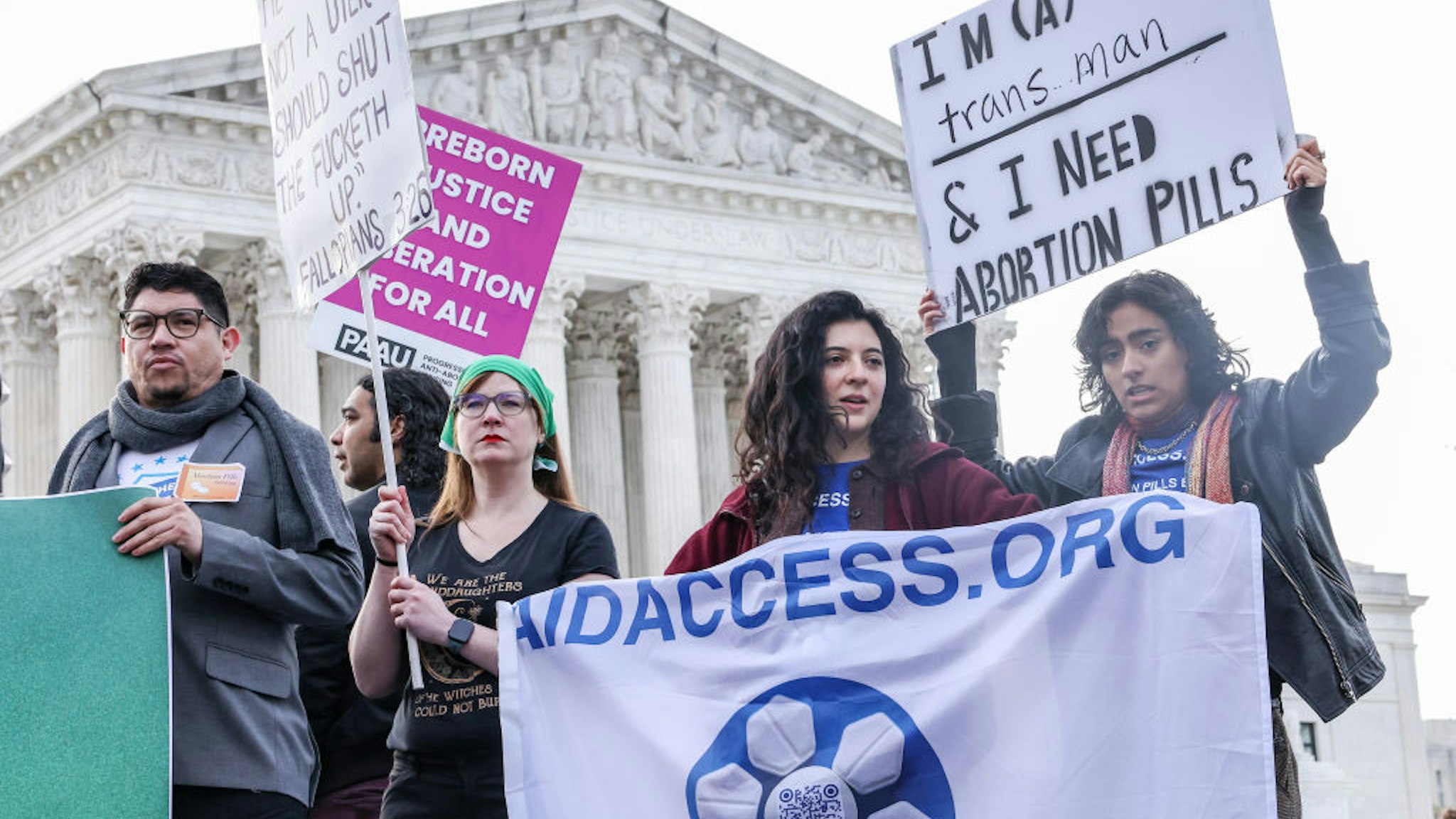 Credit: Photo by Jemal Countess/Getty Images for Women’s March.
Credit: Photo by Jemal Countess/Getty Images for Women’s March.
The Supreme Court heard oral arguments on Tuesday on whether to reinstate certain FDA restrictions on mifepristone, the drug that is used in more than half of the abortions in the United States.
The arguments come as a group of pro-life physicians, the Alliance for Hippocratic Medicine, represented by the Alliance Defending Freedom, sued the Biden administration after it lifted restrictions on the mailing and prescribing of abortion pills. The physicians say that the previous limits should be reinstated for safety reasons and that the FDA relaxed its guidelines for politicized reasons. Changes in 2016 and 2021 made mifepristone available by mail and allowed the drug to be prescribed by medical providers who are not physicians.
“Women should have the ongoing care of a doctor when taking high-risk drugs. The FDA betrayed women and girls when it unlawfully removed the necessary in-person doctor visits that protected women’s health and well-being,” ADF lawyer Erin Hawley said in a statement before arguments began. “The FDA’s own label for abortion drugs says that roughly one in 25 women who take them will end up in the emergency room. Yet the federal government continues to defend its reckless actions that jeopardize women’s health and safety.”
The case, FDA v. Alliance for Hippocratic Medicine, came to the court after the Fifth Circuit Court of Appeals ruled in August that mifepristone should not be distributed through the mail or prescribed via telemedicine. Hawley, the wife of Sen. Josh Hawley (R-MO), is arguing for the Alliance for Hippocratic Medicine while the Biden administration is being represented by Solicitor General Elizabeth Prelogar.
During arguments on Tuesday, Prelogar argued that mifepristone was safe to prescribe online and said that the pro-life doctors challenging the FDA lacked standing. She also claimed that “only an exceptionally small number of women suffer the kinds of serious complications” that pro-lifer advocates have said come with the prescription of mifepristone.
According to data from the pro-abortion Guttmacher Institute, more than 60% of abortions in the U.S. in 2023 were done via medication. The total reported was 642,700 in the formal healthcare system, which is likely substantially less than the number of medication abortions that may have been done by women ordering from non-certified websites.
Justice Samuel Alito pushed Prelogar on the standing issue, saying that someone should be able to challenge the FDA’s rollback of mifepristone restrictions.
As arguments began in the case, both pro-life and pro-abortion rights activists gathered outside the Supreme Court. Aid Access, a group that ships abortion pills across the country, had robots outside the court dispensing pills while one activist held up a sign saying, “I’m (a) trans man, and I need abortion pills.”
Here at the Supreme Court, where Aid Access is distributing abortion pills with robots. Dystopian, much? @DallasExpress pic.twitter.com/JZMMTtdouz
— Patrick Hauf 🇻🇦 (@PatrickHauf) March 26, 2024
Pro-life groups have urged the Supreme Court to rule against the FDA, saying that the agency irresponsibly rolled back restrictions.
“The FDA’s decision to weaken commonsense safeguards, removing doctors from the process, shows they prioritize ending unborn life over the health and safety of women,” said Dr. Ingrid Skop of the Charlotte Lozier Institute. “Their stories must be heard, but abortion advocates, working with corporate media, have gaslighted them into silence. I hope the Supreme Court holds the FDA accountable for their reckless actions.”
CLICK HERE TO GET THE DAILYWIRE+ APP
Several scientific studies on the potential harm of abortion pills were retracted in February, years after they were first published, when the publisher conducted a review due to a single reader complaint. The authors of the studies say the retractions are a politically motivated effort to discredit research that was cited in a federal judge’s order that sided with doctors looking to reinstate restrictions on mifepristone. They believe that the research was targeted to discredit findings on the potential dangers of mifepristone ahead of the Supreme Court’s consideration of the issue.
Source link

